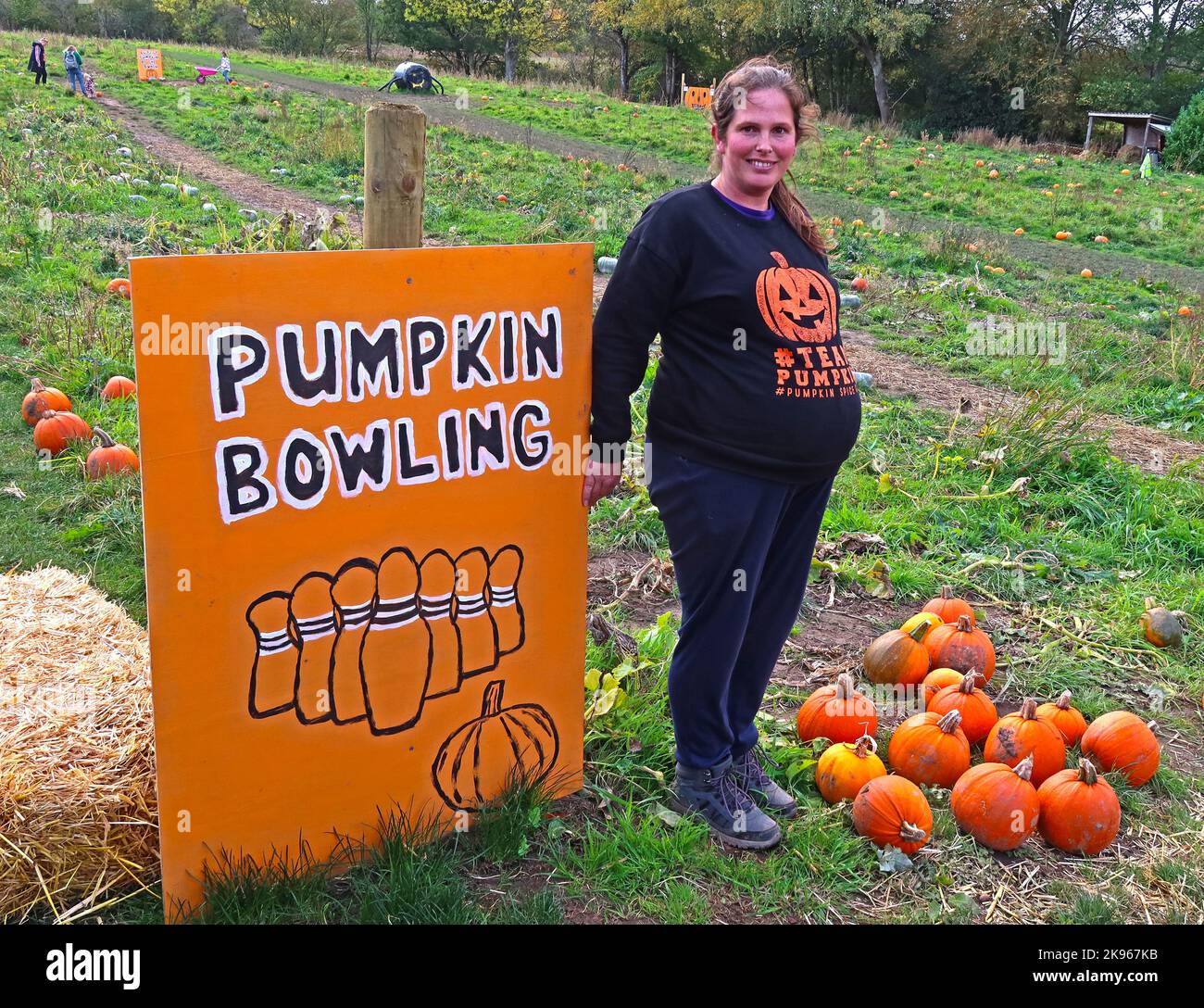Pumpkin Bowling at Lymm Pumpkin Patch Farm, Massey Brook Lane, Lymm, Warrington, Cheshire, England, UK, WA13 0EG

Image details
Contributor:
Tony Smith / Alamy Stock PhotoImage ID:
2K967KBFile size:
45.4 MB (3.4 MB Compressed download)Releases:
Model - no | Property - noDo I need a release?Dimensions:
4548 x 3492 px | 38.5 x 29.6 cm | 15.2 x 11.6 inches | 300dpiDate taken:
26 October 2022Location:
Massey Brook Lane, Lymm, Warrington, Cheshire, England, UK, WA13 0EGMore information:
Pick-your-own pumpkins offer diversified income channels The market for pumpkins in the UK has seen a huge growth in the past decade, with the public increasingly looking for an on-farm experience and to buy directly from producers. Pumpkins can offer significant additional income for farmers if done well, especially when accompanied by other value-added extras such as refreshments or attractions. There are two main markets – either selling direct to the consumer or wholesale. Each has its benefits and challenges. When growing for wholesale, there are often extra costs for grading, on-farm storage and transport. The labour-intensive harvest process for wholesale at scale will also need seasonal labour, which can be difficult to find. Selling direct to consumers poses other challenges, including public access to the farm. Pumpkin seeds can be planted indoors from mid- to late April, however it is more common to plant seeds and seedlings outdoors from May to early June. Lack of fruit can be an issue and diseases include powdery mildew and grey mould. Pumpkins can also suffer in very wet seasons and may need irrigation during a dry summer. Will John and Chris Creed, consultants at agricultural adviser Adas, say that the market is becoming saturated in some regions of the UK. However, businesses can still be profitable if they are able to market effectively. What are the essential requirements and costs? Mr Creed says: “To be successful, you have got to have infrastructure, hard car parking, booking systems, strong social media campaigns and good road access.” A potentially less risky option is to grow for an existing business, which may have already invested in the infrastructure to cater for the public. “Some farm shops and garden centres have very good infrastructures to accommodate the public, but they haven’t got much ground. So they may be able to grow some and then stock up from a local grower, which can be a win-win situation for everybody, ”